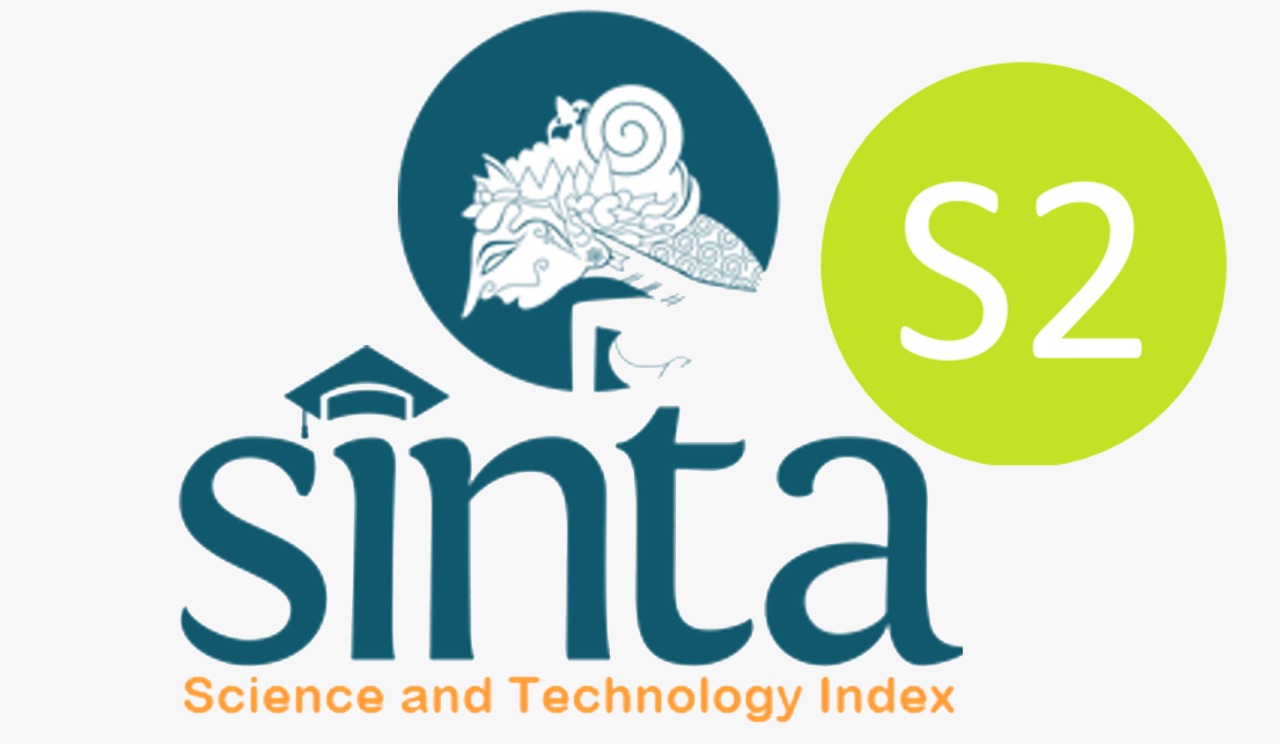FINANCIAL LITERACY, INFORMALITY, AND SMALL BUSINESS OPERATIONAL PERFORMANCE IN ZIMBABWE
Downloads
Introduction: The exponential growth of small and medium enterprises (SMEs) in many developing economies is a well-documented phenomenon in business literature. However, research indicates that the expansion of most SMEs is hindered by financial illiteracy and high levels of informality, posing significant challenges to their performance and long-term sustainability. Concerns arise from the fact that only a small fraction of these enterprises successfully transition into larger firms. This study sought to address these issues by investigating the levels of financial literacy among 120 SMEs operating in Harare and Bindura, taking into account the pervasive informality within the sector. The research also aimed to evaluate the relationship between financial literacy and SME operational performance.
Methods: Employing a quantitative approach within an explanatory research design, data collection was facilitated through a structured questionnaire. To capture the diverse landscape of SMEs operating in an informal context, both purposive and convenience sampling methods were utilized to select participants for the survey. Descriptive and inferential analyses were conducted using SPSS software.
Results: The findings of the study revealed a significant positive impact of financial literacy on SME operational performance, indicating that advanced financial literacy can contribute to enhanced business outcomes. Moreover, the research observed an improvement in financial literacy within SME operations, evidenced by increased awareness and application of financial management skills.
Conclusion and suggestion: The study recommends that efforts to promote financial literacy among SMEs should be intensified through advanced financial education initiatives, awareness campaigns, and enhanced financial inclusion strategies. Financial service providers are encouraged to play a proactive role in supporting SME growth by investing in financial awareness programs, funding educational initiatives, and actively engaging SMEs in key economic policy frameworks. Ultimately, SMEs are urged to fully embrace financial literacy as a fundamental pathway for achieving sustainable growth and long-term business success amidst the challenges of informality.
Agarwalla, S.K., Barua, S.K., Jacob, J., & Varma, J.R. (2013). Financial literacy among working young in urban India. World Development, 67, 101-109.
Ajzen, I. (1991). The theory of planned behavior. Organizational Behavior and Human Decision Processes, 50(1), 179–211. https://doi.org/10.1016/ 0749-5978(91)90020-T
Ajzen, I., & Fishbein, M. (1980). Understanding Attitudes and Predicting Social Behaviour. Prentice-Hall.
Aktar, S., & Liu, Y. (2018). SME managers and financial literacy; does financial literacy really matter? Journal of Public administration and Governance, 8(3), 353-373.
Al Omairi, R. K. K., & Matriano, M. T. (2022). The Capital Structure of Securado Company and its Impact on Profitability. GSJ, 10(6).
Banco de Portugal (2014). Análise Sectorial das Sociedades ní£o Financeiras em Portugal 2009-2014.
Barney, J.B. (1991). Firm resources and sustained competitive advantage. Journal of Management, 17(1), 99-120.
Barberis, N., & Thaler, R. (2003). A survey of behavioral finance. Handbook of the Economics of Finance, 1, 1053-1128.
Becker, G.S. (1964). Human capital: A theoretical and empirical analysis, with special reference to education. National Bureau of Economic Research.
Brown, N.P. (2018). Invariant Means and Finite Representation. Theory of Algebras (13th Ed). American Mathematical Society
Bryman, A. (2011). Risk and Return. In M.Ehrhardt & E. Brigham (eds.), Financial Management–Theory and Practice (pp. 189–227). "ŽSouth-Western College Pub.
Charan, S., & Kishinchand, P.W. (2016). Finance for micro, small and medium- sized enterprises in India: sources and challenges. ADBI Working Paper, (409).
Chijwani, M.M. (2014). A study of financial literacy among working women in Pune. International Journal for Scientific Research & Development, 1(11), 2456-2458
Clark, R., Lusardi, A., & Mitchell, O.S. (2014). Financial Knowledge and 401(k) Investment Performance. National Bureau of Economic Research.
Despard, M.R., & Chowa, G.A. (2014). Testing a measurement model of financial capability among youth in Ghana. Journal of Consumer Affairs, 48(2), 301-322.
Duesenberry, J.S. (1949). Income, saving and the theory of consumer behaviour. Cambridge: Harvard University Press.
Evans, J.B.T. (2012). Dual-processing accounts of reasoning, judgment and social cognition. Annual Review of Psychology, 59, 255–278
Fatoki, O. (2014). The Financial Literacy of Micro Entrepreneurs in South Africa. Journal of Social Science, 40(2), 151-158
Finmark Trust (2013). Zimbabwe- FinScope MSME survey 2012. Washington DC: World Bank Group. http://documents.worldbank.org/curated/en/2012/01/24048081/zimbabwe-finscope-msme-2012
Frimpong, S.E., Agyapong, G., & Agyapong, D. (2022). Financial literacy , access to digital finance and performance of SMEs : Evidence from Central region of Ghana. Cogent Economics and Finance, 10(1), 2121356, DOI: 10.1080/23322039.2022.2121356
Gathungu, J.M., & Sabana, B.M. (2018). Entreprenuer financial literacy, financial access, transactional costs and performance of micro enterprises in Nairobi City Country in Kenya. Global Journal of Management and Business Research, 18(6), 45-64.
Hagedorn, E.A., Schug, M.C., & Suiter, M. (2012). Starting early: A collaborative approach to financial literacy in the Chicago public schools. Journal of Economics and Finance Education, 11(2), 1-9.
Hair, Jr., J.F., Page, M., & Brunsveld, N. (2020). Essentials of Business Research Methods (4th ed.). Routledge
Herdjiono, I., & Damanik, L. A. (2016). Pengaruh financial attitude, financial knowledge, parental income terhadap financial management behaviour. Jurnal manajemen Teori dan Terapan, 9(3), 226-241.
Hidayati, S. A., Wahyulina, S., & Suryani, E. (2021). The effect of financial attitude and financial knowledge on company performance with financial decisions as intervening variables: a behavioural finance perspective. JMM UNRAM, 10(1), 1-4.
Kibira, V., Kiberu, J., & Twinamasiko, E. (2021).Financial literacy as a tool of business transformation for Small and Medium Enterprises in Uganda. Policy Brief 007. www.gatewayresearchcentre.org
Lianto, D., & Elizabeth, T. (2017). Financial attitude, financial behavior and financial knowledge. Management and Business Research, 8(3), 121-130.
Lusardi, A., & Mitchell, O.S. (2014). The economic importance of financial literacy: Theory and evidence. Journal of Economic Literature, 52(1), 5-44.
Lusimbo, E.N. (2016). Relationship between financial literacy and the growth of micro and small enterprises in Kenya: A case of Kakamega Central sub-county. Jomo Kenyatta University of Agriculture and Technology.
Mabhanda, W. (2015). Lack of financial literacy exacerbates SMEs appalling state in Gweru City. International Journal of Research and Development Organisation, 1(12).
Malhotra, N.K., Nunan, D., & Birks, D.F. (2017). Marketing research. An applied approach (5th ed.). Pearson.
Mandell, L., & Klein, L.S. (2009). The impact of financial literacy education on subsequent financial behavior. Journal of Financial Counseling and Planning, 20(1), 15-24.
Mashizha, M., Sibanda, M., & Maumbe, B. (2019). Financial literacy among Small and Medium Enterprises in Zimbabwe. The Southern African Journal of Entrepreneurship and Small Business Management, 11(1), a241. DOI: 10.4102/sajesbm.v11i1.241
Menike, L.M.C.S., (2019). Effect of Financial Literacy on Firm Performance of Small and Medium Enterprises in Sri Lanka. Financial Markets & Corporate Governance Conference, http://dx.doi.org/10.2139/ssrn.3306719
Messy, F.A., & Monticone, C. (2012). The status of financial education in Africa. OECD Working Papers on Finance, Insurance and Private Pensions, No 25, OECD Publishing.
Mutengezanwa, M. (2018). Financial literacy among SMEs in Zimbabwe. Doctoral Thesis: University of KwaZulu Natal, Graduate School of Business Leadership, College of Law and Management Studies.
Pallant, J. (2010). SPSS Survival Manual : A Step by Step Guide to Data Analysis Using SPSS. Maidenhead :Open University Press/McGraw-Hill.
Patel, K., & Vlaev, I. (2019). Improving financial capability. In K. Gangl & E. Kirchler (eds.), A Research Agenda for Economic Psychology (pp. 26-43). Edward Elgar Publishing.
Publications Office of the European Union (2014). Micro small and medium sized enterprises: definition and scope. eur-lex.europa.eu/legal-content/EN/TXT/
Robb, C.A., (2010). Financial knowledge and credit card behaviour of college students, Journal of family and Economic Issues, 32, 690-698.
S & P (2022). Global Financial Literacy Survey 2022 Report. www.s&p.org
Saunders, M. N. K., Lewis, P., & Thornhill, A. (2018). Research Methods for Business Students (8th ed.). Pearson.
Schagen, S., & Lines, A. (2019). Financial literacy in adult life: a report to the NatWest Group Charitable Trust. National Foundation for Educational Research Slough, Berkshire.
Schmeiser, M.D., & Seligman, J.S. (2019). Using the right yardstick: assessing financial literacy measures by way of financial well-being. Journal of Consumer Affairs, 47(2), 243262. doi:10.1111/joca.12010
Sugiyanto, T., Radianto, W.E., & Efrata, T.C. (2019). Financial literacy, financial, and financial behaviour of young pioneering business entrepreneurs. Advances in Economics, Business and Management Research, 100(1), 55-71.
Syahrir, A., Sanusi, A.D., & Syahrir, D. (2019). Financial literacy and SME performance. Management Research, 17(5(, 11-23.
Tumba, N.J., Onodugu, V.A., & Babarinde, G.F. (2022). Financial literacy and business performance among female micro entrepreneurs. Investment Management and Financial Innovations, 19(1), 156-167.
Usama, K.M., & Yusoff, W.F. (2019). The impact of financial literacy on business performance. International Journal of Research and Innovation in Social Science, iii (X).
Van der Zanden, L.F.M., Van Rooij, I.A.L.M., Feitz, W.F.J., Franke, B., Knoers, N.V.A.M., & Roeleveld, N. (2012). Aetiology of hypospadias: a systematic review of genes and environment. Human Reproduction Update, 18(3), 260-283.
Wagner, J., & Walsted, W.B. (2019). The Effects of Financial Education on Short-term and Long-term Financial Behaviors. Journal of Consumer Affairs, 23(1), 234-259.
Wendy, L.W., & Nancy, W., (2010). Harnessing the power of technology to enhance financial literacy education and personal financial well-being: A review of the literature, proposed model, and action agenda. University of Wisconsin.
Wiharno, H. (2018). Financial knowledge, financial behaviour and financial attitude and personal financial management. JRKA, 4(1), 64-76.
Copyright (c) 2024 Upenyu Sakarombe, Rutendo Taruvinga

This work is licensed under a Creative Commons Attribution-ShareAlike 4.0 International License.
Authors who publish with Jurnal Ekonomi dan Bisnis Airlangga agree to the following terms:The journal allows the author to hold the copyright of the article without restrictions.
The journal allows the author(s) to retain publishing rights without restrictions
The legal formal aspect of journal publication accessibility refers to Creative Commons Attribution Share-Alike (CC BY-SA).
Jurnal Ekonomi dan Bisnis Airlangga (JEBA) is licensed under a Creative Commons Attribution-ShareAlike 4.0 International License

















